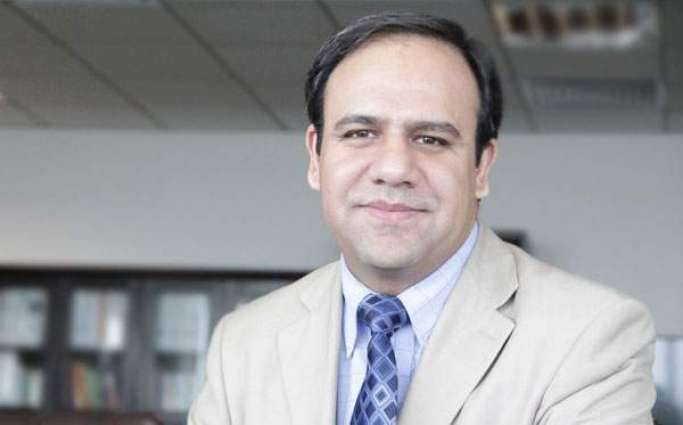LAHORE - Punjab's first ever IT Policy 2018 was approved by the Provincial Cabinet in its last meeting Thursday, which is focused to bridge the digital divide across gender, region and economic classes.
Talking to journalists on Thursday, Punjab Information Technology Board (PITB) Chairman Dr Umar Saif said that it proved government's commitment to use ICT as an enabling tool for improving governance, efficiency, transparency and accountability. The policy document consolidates all initiatives taken in the sector and also sets a future roadmap that will take the province to its ultimate destination which is making Punjab the hub of Information Technology.
He said that it would establish Punjab as the preferred destination for local and international investment in the IT/ITES industries, enable the entrepreneurial ecosystem to flourish in the field of IT/ITES, increase financial inclusion and incentives investment in innovative ICT technologies to promote e-commerce in the province, create an enabling environment for IT technologies and their safe usage through policy reform and improvements in legal framework.
The Punjab's IT Policy 2018 would attract long-term investments, improve export remittances and increase new IT parks through technology SEZs throughout the country, he stated.
Being one of the main pillars of this policy, government of Punjab has laid great emphasis on it and has extensively used technology in improving efficiency and governance across several sectors.
Presenting the policy document before the cabinet, Dr Umar Saif informed the cabinet that the process of the policy formulation started one and half year back and during its formulation stage it was ensured that the process was inclusive, outward looking, joined-up and evidence based so that a well-rounded effective policy document could be produced. To maintain highest standards of input, several focus group discussions and individual consultation sessions were conducted along with rigorous in-house research.
More than 150 individuals from across all key sectors have provided input in this document. The policy was also opened for public comments for two months, he informed. The specific policy commitments in this regard are: establishment of common resource and service centers and public Wi-fi hotspots in remote areas and promotion of ease of access for women at these service centers.
The policy document aims to address all aspects of the IT sector, including industry, entrepreneurship, academia etc.
Various steps have been taken in this regard which include payment of government taxes such as stamp duty through e-stamping; collection of other government receipts through online mediums; getting permission to start a new business under ease of doing business initiatives; acquiring hassle-free warehouse construction permits from e-Khidmat Markaz; tax exemptions for Telecoms sector & IT businesses; construction of technology parks and knowledge parks; and facilitation in setting up a new industry in any of the industrial zones in Punjab through One Window Service Centers (OWSC).
Some of the proposed initiatives are the establishment of the dedicated Special Economic Zones (SEZs) and Industrial Cities for Information Technology through which the industry will greatly benefit from tax breaks and exemptions in export duties, among other things; construction of technology parks in Lahore and other cities of the province; and reduction in taxes on IT and IT enabled businesses which will not only facilitate these businesses, but will also bring more businesses into the tax net.
The government also plans to take extensive measures for the formation of the hardware manufacturing industry through original design manufacturers (ODMs) along with proposing an e-commerce regime by means of technical and legal considerations.
He said that establishment of CM e-Rozgaar Centres across Punjab will enable the fresh graduates to polish and monetize their skills.
He said that during the last five years, the steps have been taken for the computerization of all police stations in Punjab; creation of Police Khidmat centres in all 36 districts of Punjab; automation of Criminal Record office; introduction of Hospital Management Information System (HMIS) in DHQs/ THQs; verification of attendance of doctors and paramedics through biometric attendance system; supervision of the health, education, agriculture, livestock and irrigation field staff through SIM enabled phones and tablets; compilation of real time feedback from monitoring staff for 52,394 schools in Punjab; collection of government receipts in a transparent and accountable manner; implementation of e-filing & office automation systems in different public sector entities; up-gradation of the development budget making and monitoring through Smart Monitoring of Development Projects (SMDP); establishment of a state of the art tier-III data center for Government of Punjab; initiation of video conference facility for better, economical and efficient communication across public sector offices in Punjab; establishment of Government of Punjab's citizen contact centre in order to run multiple helplines for several government departments; and computerization of land records of over 55.5 million agricultural land owners under land record management information system.
PR






